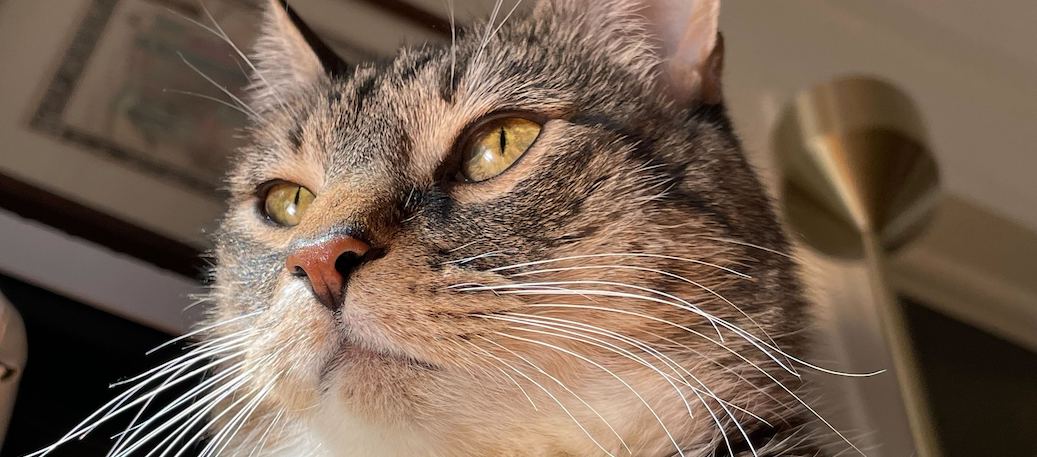A pet medical record is an official document, provided by your vet, with details about your pet’s medical history.
What’s a pet medical record?
Your pet’s medical record (also known as SOAP notes) is a confidential record of their health history that’s helpful for both care providers and your pet health insurance company. A complete record will include a history of every visit at that vet’s office, and several other variables vets consider when deciding what kind of care your pet needs in the future.
These details will include your pet’s age, breed, vaccination status, and previous medical history. It should also include a detailed record of any medications your pet might have been prescribed, as well as any emergency hospital visits. It will likely also include information on your pet’s diet and exercise habits, a list of the body systems the vet examined, and a rundown of any wellness tests that were conducted.
Knowing all about your pet’s medical history isn’t just essential to you as their parent. These records are also vital for your vet to be able to determine exactly the type of care or treatment your pet might require.
Why does my pet health insurance provider require a medical record?
When you purchase a pet health insurance policy, you agree to let your provider contact current or previous vets on your behalf, and obtain all of your pet’s medical records if needed.
Pet health insurance providers do not cover pre-existing conditions, and your pet’s medical record will be vital to determining which conditions, if any, are considered pre-existing.
A pre-existing condition refers to any kind of illness or health issue your pet developed before the start date of your pet health insurance policy and before your waiting periods have ended. It doesn’t mean your pet will be denied insurance coverage. It just means your plan won’t cover costs that directly relate to any ailment they were diagnosed with before they had a Lemonade policy.
Your policy explains that any diagnoses, treatments, or symptoms of a condition listed in your pet’s medical record can indicate a pre-existing condition.
So while treatment for diabetes is covered under a basic policy, you’ll only be reimbursed for eligible costs if your pet was diagnosed with diabetes after your policy was already active.
Can my pet health insurance provider participate in a claim without my pet’s medical record?
No. Some insurance companies might not let you know they need a copy of your medical record until you file a claim. But then you’ll find that, before they’re ready to participate in the cost of treatment, your insurer will want to check a medical record.
At Lemonade, we require a medical record that includes info that covers the last 12 months of your pet’s life (plus the 14 day illness waiting period on your policy). If your pet is less than a year old, the medical record should include info from birth through the illness waiting period.
How do I get a copy of my pet’s medical record?
If you’ve just taken in a pup or kitten, your tiny new friend likely doesn’t have a medical history yet. So while there may be no records to obtain, there’s also no better time to start a medical record! Take your pet to the vet for a medical exam to find out what the status of their health is, and start what we hope will become a long record of a healthy life. (Btw, the earlier you get insurance the more likely your pet is to be free of pre-existing conditions. That means you’ll likely save more money on treatments and illnesses over your pet’s lifetime.)
If you’ve adopted your pet from a shelter, they should hand over a copy of your new pet’s medical history that you can pass along to your new vet. If you adopted your pet from a friend or a private owner, just be sure to remind them that you’ll need whatever medical records they have. This will help to ensure your pet has already been–or will be–given all appropriate vaccinations and subsequent boosters, and checked for any health issues.
What if my pet has had multiple vets?
It’s not uncommon for your pet’s former veterinarian’s office to mail, email, or fax your pet’s medical history to a new vet. If you’re switching vets you can also request a copy for yourself and bring it along to your pet’s first appointment with their new doctor. Vets are legally required to release your pet’s records to you, so you shouldn’t have any problem obtaining a complete record.
A few quick words, because we <3 our lawyers: This post is general in nature, and any statement in it doesn’t alter the terms, conditions, exclusions, or limitations of policies issued by Lemonade, which differ according to your state of residence. You’re encouraged to discuss your specific circumstances with your own professional advisors. The purpose of this post is merely to provide you with info and insights you can use to make such discussions more productive! Naturally, all comments by, or references to, third parties represent their own views, and Lemonade assumes no responsibility for them. Coverage and discounts may not be available in all states.




